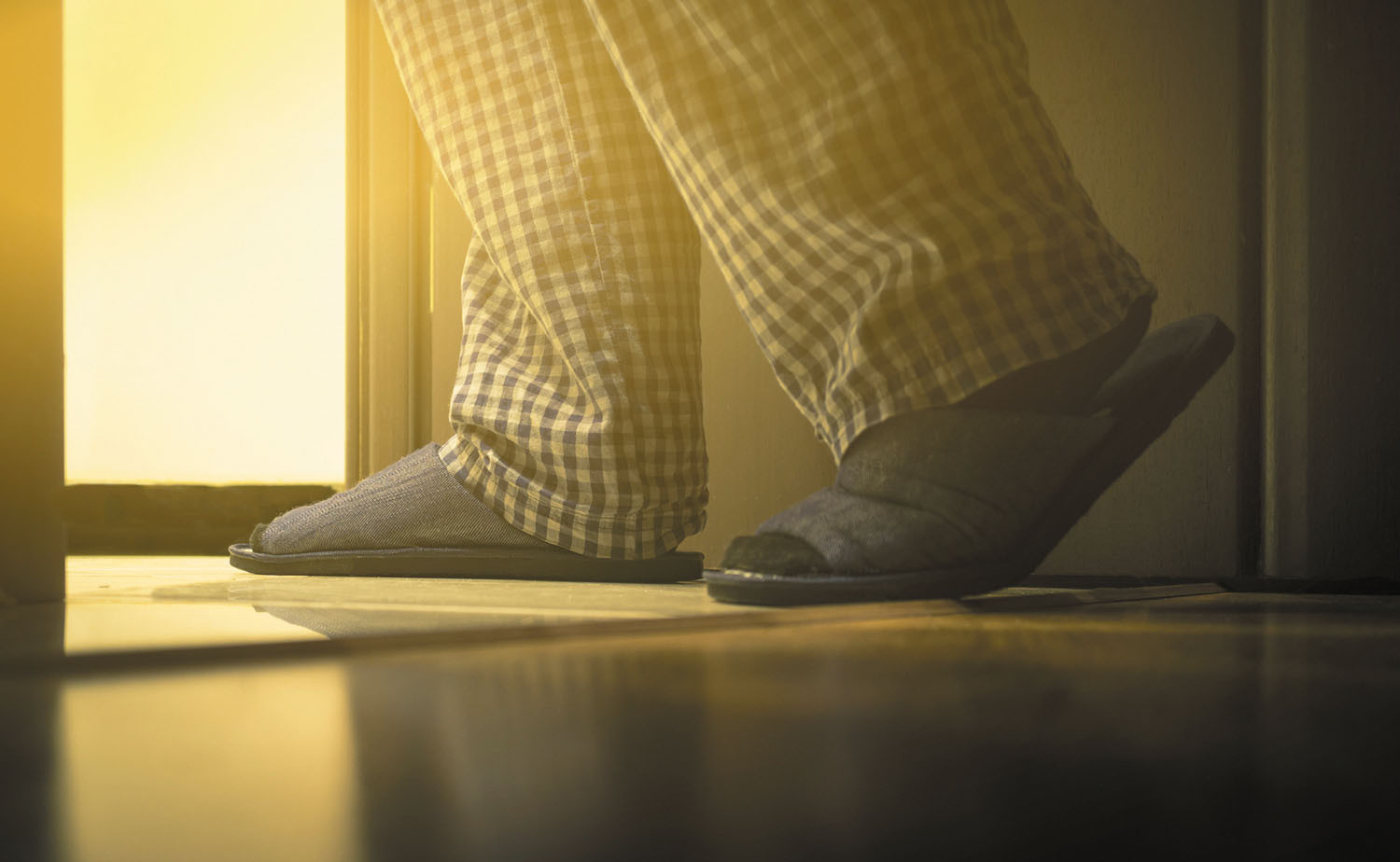Why you keep waking up to go to the bathroom
Frequent nighttime waking has many causes. Correcting it takes lifestyle change and possibly medical treatment.
- Reviewed by Anthony L. Komaroff, MD, Editor in Chief, Harvard Health Letter; Editorial Advisory Board Member, Harvard Health Publishing

Waking up to go to the bathroom in the middle of the night happens to most of us, especially after age 50. If it's a rare occurrence, you might think of it as little more than an inconvenience. If it's a regular routine that includes one or more bathroom trips per night, it could signal a health problem called nocturia that might impair the quality of your sleep or set you up for a dangerous fall in the dark.
Lifestyle or age-related causes
Nocturia is common with age in both men and women. Sometimes lifestyle is to blame. For example, it could be that you drink caffeinated beverages too late in the day. Caffeine increases your kidneys' production of urine. Or maybe you're drinking a lot of fluids close to bedtime. "The kidneys never stop making urine, and many people make urine more efficiently when they're lying flat than when they're sitting or standing," says Dr. Michael O'Leary, a urologist at Harvard-affiliated Brigham and Women's Hospital.
Age-related hormone changes can also lead to nocturia. "An important hormone that helps you hold on to fluid in the night, called antidiuretic hormone, decreases naturally with age," says Dr. Mallika Anand, a urogynecologist at Harvard-affiliated Beth Israel Deaconess Medical Center.
Underlying conditions
Underlying conditions often cause nocturia. In pregnancy, the weight of the fetus puts pressure on the bladder, producing the urge to urinate sooner, and there is increased urine production. In older women, an overactive bladder that results in a larger number of urinations is common, particularly after menopause. In men, an overactive bladder is frequently caused by an enlarged prostate (benign prostatic hyperplasia, or BPH). "That reduces urine flow from the bladder, which makes the bladder muscle walls more likely to be overactive," Dr. O'Leary says.
Both men and women can experience nocturia due to various medical conditions. "For example," Dr. Anand says, "in individuals with type 2 diabetes, the kidneys remove the extra sugar that's in the blood, and produce more urine to carry that waste out of the body. Also, people with diabetes tend to drink more fluids because of increased thirst. In people with sleep apnea, the brain recognizes it isn't getting enough oxygen at night. To increase oxygen circulating in the blood, the brain signals the kidneys to increase blood volume, and tells the heart to pump faster. That increases urine production."
Other reasons for nocturia include kidney disease; taking diuretics and other medications to control blood pressure; or varicose veins that lead to daytime retention of fluid, which shifts from the legs to the blood and kidneys at night.
Nocturia risks
Nocturia has several risks. If it keeps you from sleeping well, your mood and concentration may suffer, or you may develop greater risks for obesity, high blood pressure, heart disease, diabetes, stroke, cognitive decline, and premature death. And your brain may not have enough time to properly clear out toxins associated with dementia.
Nocturia also increases the risk of falls if you're getting up frequently and walking to the bathroom in the dark.
Avoid nighttime fallsFrequent trips to the bathroom increase your risk for falls. Reduce the risk by following these tips:
|
What you can do
Treating nocturia starts with lifestyle changes. "Try to stop drinking fluids several hours before bed, and eliminate caffeinated beverages 10 hours before bedtime," Dr. Anand advises. "And limit evening alcohol intake, since alcohol promotes nocturia."
Also, ask your doctor if you need to be tested for the various possible diseases that can cause nocturia which may not yet have been diagnosed. If you have some of these diseases, ask your doctor if increasing the treatment might reduce your nocturia.
Medications can sometimes help ease nocturia. In men with BPH, this could include drugs (alpha blockers) that improve the flow of urine, helping empty the bladder before bedtime. "But you won't go from getting up five times a night to zero times. It might just go from five to two," Dr. O'Leary says.
For women, bladder medications may help ease nocturia. But the drugs have possible side effects, and Dr. Anand says the risks and benefits have to be weighed carefully.
Pill-free approaches include pelvic floor exercises, injections of botulinum toxin (Botox), or nerve stimulation.
Image: © Sergey Dogadin/Getty Images
About the Author

Heidi Godman, Managing Director
About the Reviewer

Anthony L. Komaroff, MD, Editor in Chief, Harvard Health Letter; Editorial Advisory Board Member, Harvard Health Publishing
Disclaimer:
As a service to our readers, Harvard Health Publishing provides access to our library of archived content. Please note the date of last review or update on all articles.
No content on this site, regardless of date, should ever be used as a substitute for direct medical advice from your doctor or other qualified clinician.















